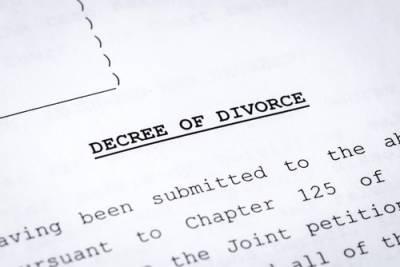Modifying Your Divorce Decree
 When a divorce is finalized, the court sets the terms of child support, spousal maintenance, and visitation. Although these terms are generally deemed final, there are situations where courts are willing to modify a divorce decree. If you believe that your child custody arrangement or support agreement should be modified, it is important to contact a high asset divorce lawyer who can help you modify your divorce decree.
When a divorce is finalized, the court sets the terms of child support, spousal maintenance, and visitation. Although these terms are generally deemed final, there are situations where courts are willing to modify a divorce decree. If you believe that your child custody arrangement or support agreement should be modified, it is important to contact a high asset divorce lawyer who can help you modify your divorce decree.
Mutual Agreement
One of the easiest ways to modify an order related to child custody, child support, or alimony is by mutual agreement. In these cases, both parties file a petition with the court that contains the agreed upon changes. As long as those changes are in the best interests of the couple’s children and the judge approves them, the previous divorce decree can be altered, usually without any hearings or trials.
Changed Circumstances
Parents who cannot come to a mutual agreement must be able to demonstrate that they have experienced a material and substantial change in circumstances in order to obtain a modification of their divorce decree. What qualifies as a substantial change in circumstances depends on the specific facts of each case, but courts usually find that the following changes justify modification:
- Remarriage;
- A loss of employment;
- Relocation;
- Receiving a diagnosis of a chronic illness; and
- The birth of another child.
However, even if a substantial change in circumstances has occurred, a court will not modify an order regarding the division of marital property. The only types of orders that courts will consider changing after a divorce has been finalized are those related to child support, custody, and spousal maintenance. It’s also important to keep in mind that a court will not change a child support order just because the paying party has experienced a change in lifestyle. This applies to an increase in the needs, as well as the standard of living of the payor.
Custody orders are especially difficult to change, although a court may be more inclined to grant a modification if:
- The child in question is 12 years of age or older and has expressed a desire to live primarily with one parent;
- One parent has voluntarily relinquished primary care and possession of the child; or
- One parent has been incarcerated for more than 90 days.
To learn more about amending your own custody order, please call our legal team for help.
Call an Experienced Leander High Asset Divorce Attorney Today
If you recently secured new employment, have remarried, or are considering moving to another state, you need the advice of a dedicated Leander high asset divorce attorney who can ensure that your divorce decree is properly amended. To discuss your own case with an experienced Cedar Park high asset divorce attorney, please contact Powers Kerr & Rashidi, PLLC today.
Sources:
http://www.statutes.legis.state.tx.us/Docs/FA/htm/FA.156.htm
https://www.texasattorneygeneral.gov/files/cs/coparenting.pdf




 512-610-6199
512-610-6199
